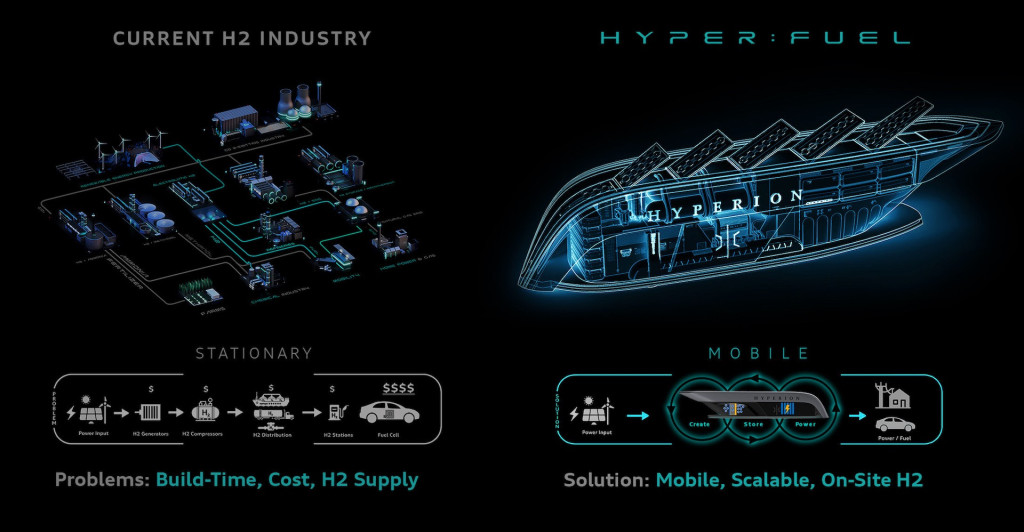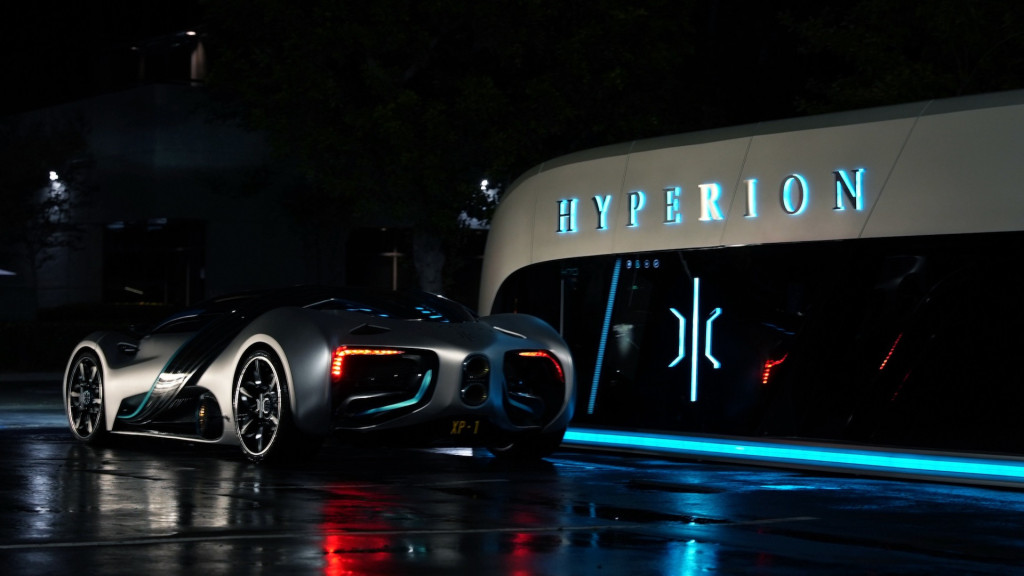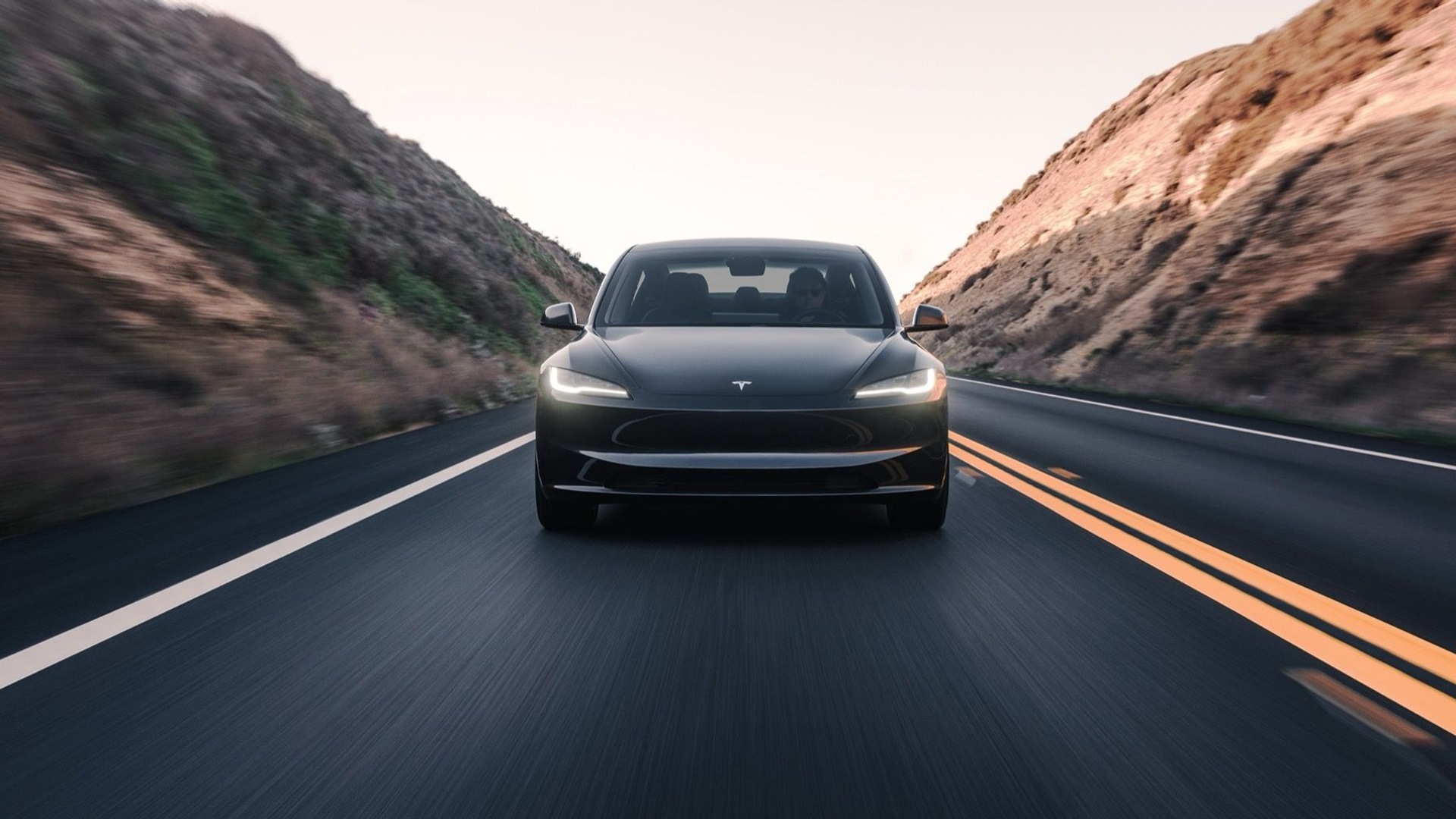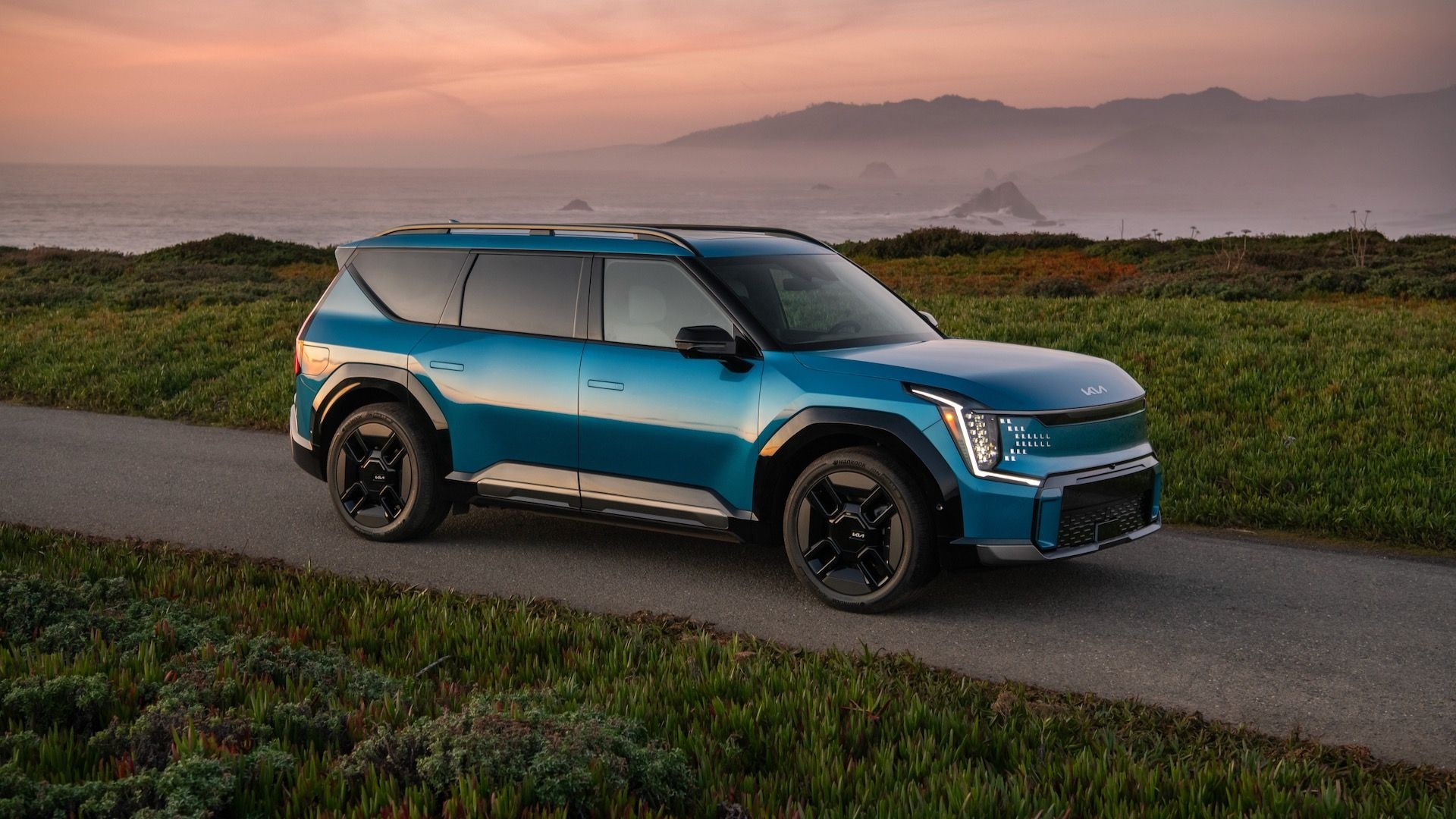With little hydrogen infrastructure available, Hyperion Motors plans to deploy mobile hydrogen stations to support its XP-1 fuel-cell supercar.
The Hyper:Fuel Mobile Stations, which can also be equipped with DC fast-chargers for battery-electric vehicles, will be quicker to deploy than conventional infrastructure, and can be repositioned as needed to meet real-time demand, Hyperion said in a press release.
Hydrogen can be produced onsite via water electrolysis, with electricity supplied by solar panels mounted on the roof of each unit to ensure the hydrogen produced is truly green, according to Hyperion. How hydrogen is produced is an important consideration, because some methods can be quite carbon-intensive.

Hyperion Hyper:Fuel Mobile Station
Green hydrogen might be ready to scale up this decade, the Rocky Mountain Institute recently underscored. But without a strict definition of what makes green hydrogen green, The U.S. Energy Department's proposed hydrogen hubs might be as dirty as coal, experts have warned.
The stations are being developed with technologies from NASA and Shell's GameChanger startup accelerator program, and will feature "state-of-the-art touch screen controls, contactless payment, and a self-sanitizing nozzle utilizing UV light," Hyperion said.
The company also said the stations will be able to function as stationary energy-storage units capable of "storing electrons for much longer lengths of time than is possible for batteries," although it didn't go into detail about how that would be accomplished. In addition to supplying power for EV fast charging, this will allow the stations to serve as emergency backup power sources in the event of outages, Hyperion claims.

Hyperion Hyper:Fuel Mobile Station
Hyperion will manufacture the stations at its Columbus, Ohio, facility and plans to deploy the first ones in 2023. The XP-1 supercar, meanwhile, was supposed to start deliveries earlier this year. Hyperion didn't provide an updated timeline, but it confirmed to Green Car Reports that it is still part of the plan.
When it unveiled the XP-1 in 2020, Hyperion quoted some impressive specs, including 1,016 miles of range, 0-60 mph acceleration quicker than 2.2 seconds, and a 221-mph top speed. Enabling that is a claimed curb weight of less than 2,000 pounds, which Hyperion said at the time was made possible by hydrogen propulsion.
But with production limited to just 300 cars, the XP-1 won't exactly justify a hydrogen network by itself. Remarkably, though, it's not the only hydrogen-powered supercar in the works. Announced in 2021, the Viritech Apricale aims to serve as a flashy demonstrator for startup Viritech's hydrogen tech.












